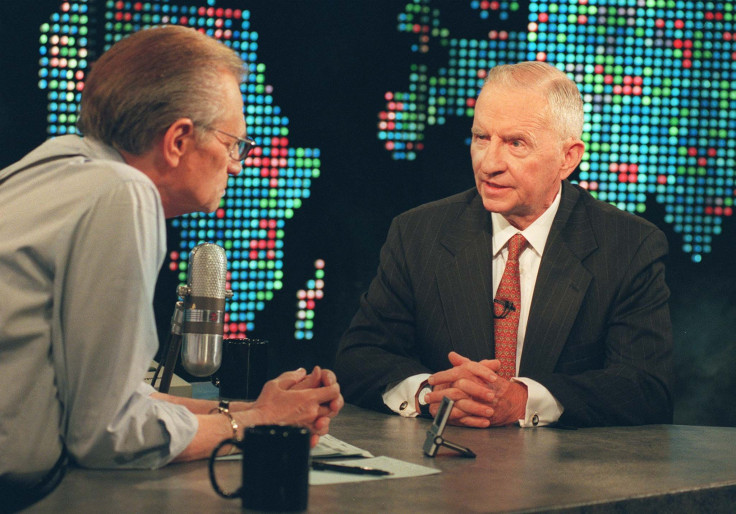Billionaire Ross Perot Dies At 89: A Look At His Net Worth, Political And Business Legacy

H. Ross Perot, the famed Texas billionaire who twice unsuccessfully ran for president as a third-party candidate, died Tuesday. He was 89.
A family spokesperson said the cause of death was leukemia and that Perot had battled the disease for five months.
Perot, who started out as a paperboy and later a salesman for IBM, made his fortune as a tech entrepreneur.
Perot had an estimated net worth of $4.1 billion, according to Forbes. After beginning his tech career with IBM, he left the company in 1962 to form multinational IT company Electronic Data Systems (EDS). In 1969, he took EDS public, making him a billionaire. Perot made his fortune in the tech industry long before companies like Microsoft and Apple became popular.
He later founded Perot Systems, which was sold to Dell in 2009 for $3.9 billion. Prior to the acquisition, Perot Systems had annual revenue of $2.8 billion. It had offices in 25 countries.
Perot ran for president in 1992 as an independent and in 1996 as a member of the Reform Party. Perot was focused on fiscal issues such as the deficit, lobbying issues and international trade.
During his 1992 run, Perot famously argued that the proposed North American Free Trade Agreement (NAFTA) would result in a "giant sucking sound" that would send U.S. jobs abroad to countries with lower wages such as Mexico.
Democratic candidate Bill Clinton ended up winning the election and signing the NAFTA proposal, which went into effect in 1994.
Although Perot lost to Clinton in 1992, he ended up winning an estimated 18.9% of the vote and was seen as a popular alternative to both Clinton and incumbent Republican President George H.W. Bush. Perot opened up the possibility of being a popular third-party candidate in the modern era. In 1996, he received 8.4% of the vote.
Perot's advocacy of populist ideas such as economic protectionism may have also had an influence on President Donald Trump, who has pushed for keeping jobs in the U.S. through a system of tariffs against countries such as China and India. Trump has also been frequently critical of NAFTA.
© Copyright IBTimes 2024. All rights reserved.





















